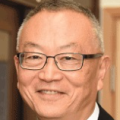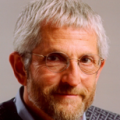Facebook Live | Coronavirus Updates: Facts from Hong Kong and Beyond (Episode 4)
VIEW EVENT DETAILSConversation with UC Berkeley, HKU and U.S. CDC Experts
On January 30, the World Health Organization declared a global health emergency on the spread of COVID-19 that originated in Wuhan. Healthcare experts have warned that COVID-19 could rapidly spread, if not properly contained, and many governments around the world have begun to take precautionary measures to ensure public health safety. Amid the international concern and heightened fears about the disease, what is fact and what is fiction? The Asia Society Hong Kong Center brings you regular updates on the coronavirus story via live webinars with on-the-ground public health experts and renowned specialists sharing the latest facts and evidence-based findings. In episode 4, hear from a panel of UC Berkeley, HKU and U.S. CDC experts, with the discussion moderated by S. Alice Mong, Executive Director of Asia Society Hong Kong Center.
Got questions? Ask them here
Can't access Facebook? Join us on Zoom!

Keiji Fukuda is Director and Clinical Professor in the Community Medicine and Public Health Practice Division at The University of Hong Kong’s School of Public Health. He was a staff member of the WHO in 2005-2016, serving most recently as Special Representative for Anti-Microbial Resistance for the Director-General and Assistant Director-General for Health Security. At WHO, Prof. Fukuda led field investigations related to global outbreaks, such as influenza H5N1 and H7N9, pandemic influenza, SARS, MERS and Ebola. He most recentlyfacilitated the development of an intergovernmental multi-sectoral process that resulted in a historic Heads of State level meeting at the U.N. and a U.N. resolution on antimicrobial resistance. During his tenure at WHO, Prof. Fukuda has become increasingly involved and interested in health diplomacy, which has emerged as a major need in a more globalized world. Before joining WHO, he was Chief of Epidemiology in the Influenza Branch of the U.S. CDC. Prof. Fukuda led the CDC field teams that assisted Hong Kong during the emergence of avian influenza H5N1 in 1997 and has worked closely with China on issues, such as influenza surveillance, SARS and influenza H7N9.

Nicholas Jewell is Professor of Biostatistics and Statistics at the School of Public Health at the University of California, Berkeley. Since arriving at Berkeley in 1981, he has held various academic and administrative positions, most notably serving as Vice Provost from 1994 to 2000. Dr. Jewell served as Assistant Professor of Statistics at Princeton University and held academic appointments at University of Edinburgh, Oxford University, London School of Hygiene and Tropical Medicine and University of Kyoto. In 2007, he was a Fellow at Rockefeller Foundation Bellagio Study Center in Italy. He is a Fellow of the American Statistical Association, Institute of Mathematical Statistics and American Association for the Advancement of Science. Dr. Jewell is the 2005 winner of the Snedecor Award from Committee of Presidents of Statistical Societies (COPSS).

Arthur Reingold is Division Head of Epidemiology and Biostatistics at the University of California, Berkeley, School of Public Health. He has worked for over 40 years on the prevention and control of infectious diseases at the national level, including eight years at the U.S. Centers for Disease Control and Prevention (CDC), and with numerous developing countries. Prof. Reingold has directed or co-directed the CDC-funded California Emerging Infections Program since its inception in 1994. His research interests include vaccine-preventable diseases, respiratory infections including influenza, bacterial meningitis, disease surveillance and outbreak detection and response. Among other honors, Prof. Reingold was elected to the Institute of Medicine of the National Academy of Sciences in 2003.

Jordan Tappero serves as Deputy Director of Neglected Tropical Diseases at the Bill and Melinda Gates Foundation, and is Rear Admiral and Assistant Surgeon General of the U.S. Public Health Service (Retired). A physician epidemiologist by training, he joined the Foundation in 2018 after completing a 25-year career with the U.S. CDC, including as Country Director in Botswana, Thailand, Uganda and Haiti. Dr. Tappero is presently focused on the eradication of the Guinea worm and global elimination of lymphatic filariasis, human African trypanosomiasis and visceral leishmaniasis in Asia. He has broad public health skills, including the conduct of randomized clinical trials; implementation of HIV/AIDS, tuberculosis and NTD prevention, care and treatment programs; introduction of new childhood vaccines; developing surveillance systems; and serving as CDC Incident Manager for complex humanitarian emergencies.
